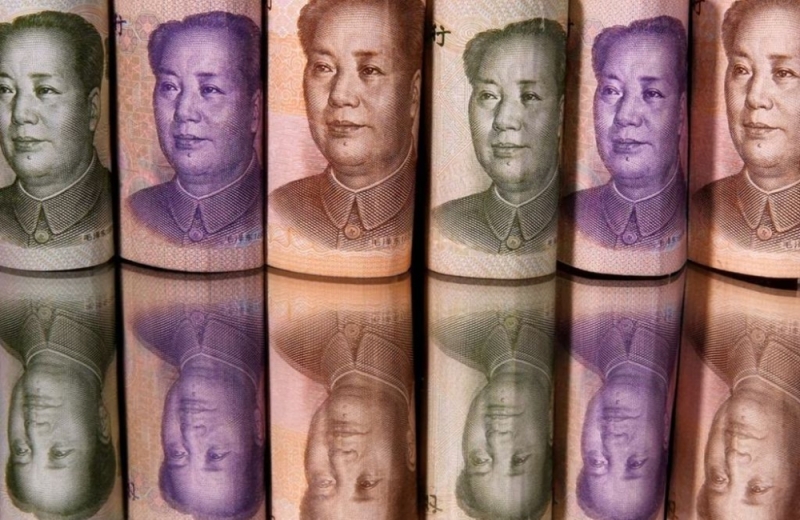Stocks wobbled on Wednesday after the latest round of earnings prompted concern among investors over the economic outlook, as even Google parent Alphabet (GOOGL.O) disappointed, adding to the angst over painfully high interest rates.
Overnight, Asian stocks rose from 11-month lows as investors cheered China's approval of a trillion-yuan sovereign bond issue as a harbinger of stimulus, while the Australian dollar jumped after hotter-than-expected inflation lifted rate forecasts.
Over in Europe, the STOXX 600 (.STOXX) fell 0.5%, after a near-50% slump in shares of Worldline (WLN.PA) after the French payments company cut its payment targets, as economic slowdown hit some of its key markets.
In a heavy day for bank earnings, Deutsche Bank (DBKGn.DE) was an outlier, with a 7% rise in its shares in an otherwise weak financial sector (.SX7P).
The MSCI All-World index (.MIWD00000PUS) dipped 0.1% on the day. The index is heading for a third straight monthly decline in October, with a loss of 1.9%, largely as a function of the surge in U.S. Treasury yields.
U.S. Treasuries held onto a bounce-back after the 10-year yield breached 5% on Monday, with the benchmark yield firm at 4.82%.
Mega cap tech companies have been a huge success story for equity investors in 2023. Yet shares in Alphabet (GOOGL.O) fell 6.9% in pre-market trading after reporting another slowdown in its cloud business, while Microsoft (MSFT.O) shares rose more than 3%. Nasdaq 100 futures fell 0.5%, while S&P e-mini futures dropped 0.3%.
"Tech earnings got off to a mixed start last night thanks to a focus on cloud computing, one of the big money spinners for the sector," Chris Beauchamp, IG Group chief market analyst, said.
"Stocks have picked up somewhat in the past 24 hours, but it’s now up to Meta tonight and Amazon tomorrow to provide the kind of good news that might give stocks a reason to rally into month-end."
China's top parliament approved a 1 trillion yuan ($137 billion) bond issue, state media reported, adding the funds would be spent rebuilding disaster zones and improving infrastructure.
"Government expenditure will help the economy to stabilise further and strengthen growth in the fourth quarter," said Steven Leung, executive director of institutional sales at broker UOB Kay Hian in Hong Kong.
Adding a gloomier note was a report that Country Garden (2007.HK), China's biggest private property developer, had been deemed in default on a U.S. dollar bond for the first time.
In currency markets, the euro gained some respite from an improvement in German business confidence, after taking a knock on Tuesday from weaker-than-forecast purchasing managers surveys. It was last steady at $1.0594.
The yen sat at 149.88, while the Australian dollar hovered around two-week highs near $0.64.
The annual pace of inflation in Australia slowed in the third quarter, but the Reserve Bank of Australia's (RBA)preferred core measure rose 1.2% to top forecasts of 1.1%.
"We consider the lift in underlying inflation over Q3 23 to be sufficiently strong for the RBA to act on their hiking bias at the upcoming Board meeting," said analysts at CBA.
Brent crude futures fell 0.4% to $87.70 a barrel, with Europe's faltering economy prompting traders to wind back gains made in the wake of the conflict in the Middle East.










